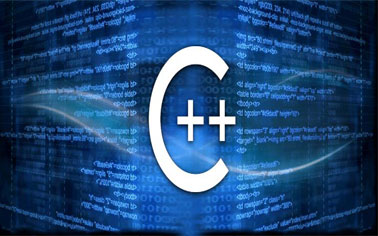On learning C Programming one can master C++ Programming language. C++ is an extension to C Programming and covers Object Oriented Programming popularly known as OOPS Concepts. C++ is a powerful general-purpose programming language. It can be used to create small programs or large applications. It can be used to make scripts or DOS programs. C++ allows you to create programs to do almost anything you need to do.
The major difference between C and C++ is that C is procedural programming language and does not support classes and objects, while C++ is a combination of both procedural and object oriented programming language; therefore C++ can be called a hybrid language.C++ was developed in the early 1980s by Bjarne Stroustrup at Bell Labs. It was designed to combine the efficiency and flexibility of C with the added power of OOP, allowing programmers to write code that is fast, modular, reusable, and easier to maintain.

At ACE Academy, our C++ course is designed to take you from basic syntax to advanced concepts, ensuring you gain hands-on experience through practical coding exercises and real-world projects.our C++ course equips students with practical programming skills, deepens their understanding of software development, and prepares them for both academic and professional success. Today, C++ is used in a wide range of industries including finance, game development, robotics, system software, and more.
Course Highlights :
1. Beginner to Advanced Level Training for both academic and professional success.
2. Hands-on Coding Sessions
3. Object-Oriented Programming (OOP) Concepts
4. Data Structures & Algorithms in C++
5. STL (Standard Template Library) Usage
6. Real-world Projects & Assignments
7. Certification upon Completion,
What You’ll Learn in Our C++ Course :
1. C++ Basics — Data types, variables, operators, control statements, loops. 2. Functions & Arrays — Organize code effectively and handle collections of data. 3. Pointers & Dynamic Memory — Manage resources efficiently for advanced applications. 4. Classes & Objects — Build modular, reusable software using OOP principles. 5. Inheritance & Polymorphism — Create flexible and scalable applications. 6. Templates & STL — Use generic programming techniques and ready-made data structures. 7. File Handling — Read and write files for data storage and management. 8. Projects & Assignments — Apply concepts in real-world coding projects.Advance your programming skills with C++! Learn object-oriented programming, master efficient coding techniques, and build real-world applications. Perfect for students, engineers, and professionals ready to level up.